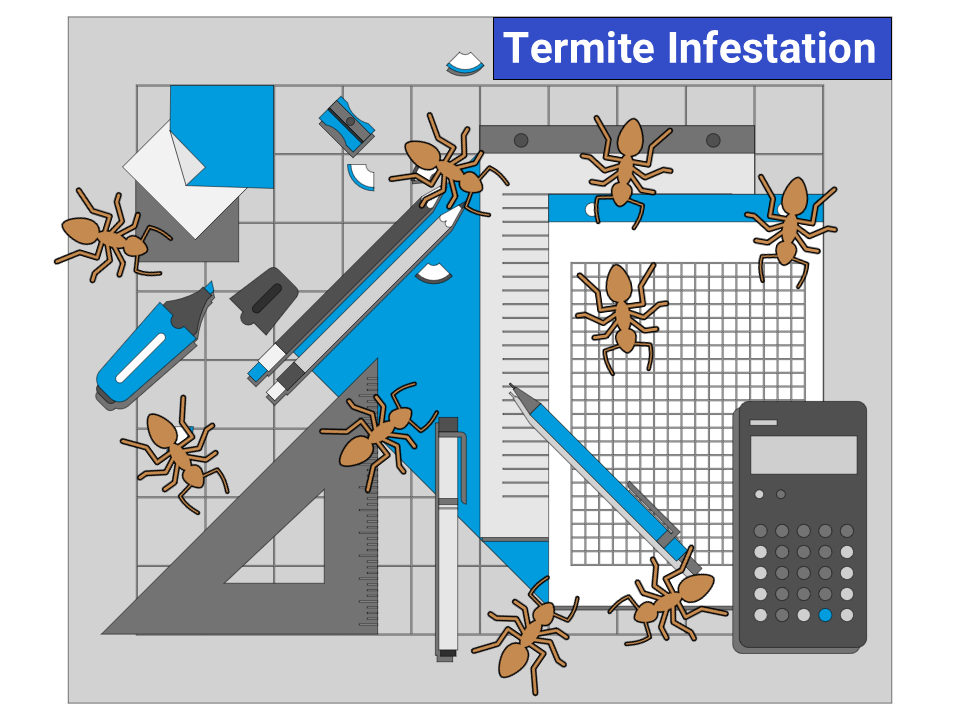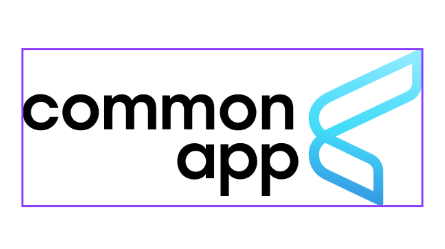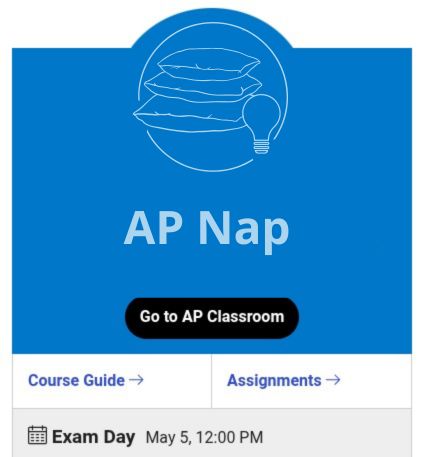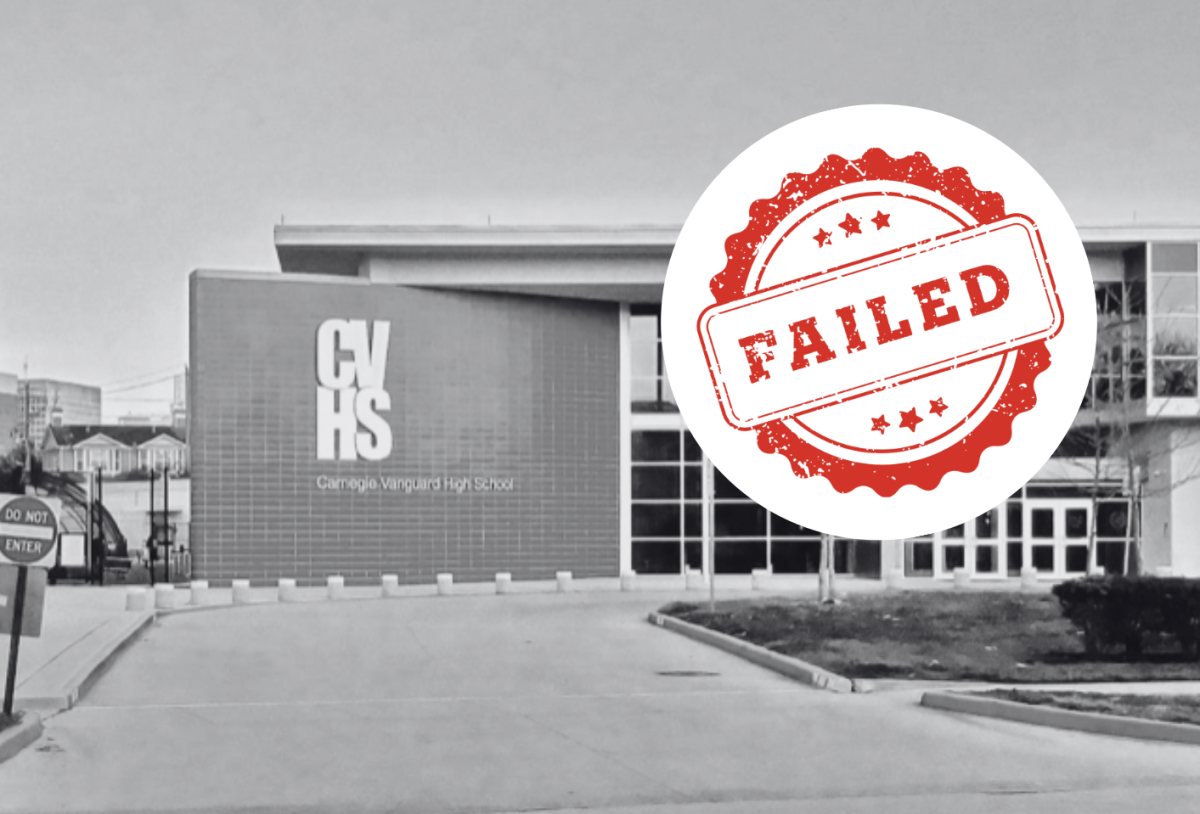The 28 Advanced Placement exams that will be partially or fully administered online in May 2025 are being forced to go digital due to termite infestations at College Board printing and storage facilities, the organization said in an April 1 press release.
The nonprofit, which annually administers millions of its Advanced Placement exams across 40 subjects to high school students worldwide, had previously cited exam security and accessibility as reasons for switching its 2025 exams online.
“Digital exams were the only way we could feasibly administer the exams in 2025 after termites decimated the paper exam booklets we had prepared,” College Board spokesperson Maria Sandoval said.
The organization decided to go public about the termite problem only after it was clear that the pests were contained. College Board still cites the previously purported benefits as reasons for the change but clarified that the infestation was “the primary issue.”
“We would never just arbitrarily make such a drastic change unless we were forced to,” Sandoval said.
Both the multiple-choice and free-response question booklets were destroyed for almost every exam, but not all subjects were equally affected. Tests that involved a significant amount of writing, like AP English Language and AP World History, sustained additional damage to their answer booklets and thus had to go fully digital.
“Unfortunately, the multiple-choice bubbling sheets and the essay response booklets were unrecoverable,” Sandoval said. “We did everything we could, but the termites’ digestive enzymes stumped even our best in-house termite experts.”

The AP exams for math and science classes, however, weren’t hit as hard, allowing College Board to offer “hybrid exams.” While the multiple-choice section is digital, students respond to digital free response questions on paper. A physical formula sheet is also provided on paper.
“Thankfully, we were able to salvage the paper formula sheets. We simply can’t imagine how hard it would be for students to have to go back and forth between digital and paper interfaces,” Sandoval said.
In a follow-up statement to Upstream News, College Board also added that it is “committed to being transparent and getting feedback” as testing season ramps up. But not everyone agrees.
“I don’t think [College Board] should be more transparent. I’m sure that they know better than teachers and students,” Bryce Thompson said.
Thompson, an AP teacher for 23 years, says he’s come to the realization that “College Board always does what is best for everyone.”
“I think I can speak for all my colleagues in saying that we trust College Board completely,” Thompson said. “They don’t need our input.”
In fact, according to an April 1 survey conducted by College Board, 92% of students felt better prepared to take an AP exam after learning that the tests were going online — though the organization has yet to publish its survey methodology.
“We will release our methodology in the near future on a date to be determined,” Sandoval said. “In the meantime, many testimonials are available on our website.”
Sophomore Teresa Mite, one of the students who gave a testimonial, says that she and her colony of friends can back up College Board’s claims.
“Tap … tap-tap tap,” said Mite, who emphasized in a follow-up email that she was not a termite.
Other students, like junior Jen Erik, say that they find the new test format to be an “interesting new challenge” to tackle.
“I really love staring at my computer for hours on end and getting surprised with new content,” Erik said. “Digital AP exams are perfect for me.”
She also applauded the termites for “streamlining” AP exams, calling them “heroes bringing long-overdue change.” Instead of spending 30 minutes labeling exam sheets with stickers, students now spend 25 minutes going through the digital check-in process.
“I’m just so excited that we finally get to take digital exams after all the anticipation,” Erik said. “I was so excited when I first read the surprise announcement.”
However, in spite of all the positive buzz around the change, College Board has maintained its pricing from last year for its 2025 digital AP exams. The organization says that the exam fees are necessary to cover any costs associated with hiring an exterminator.
“Honestly, this deal almost seems too good to be true. [College Board] is so generous,” Thompson said.
And with the large size of the termite infestation — College Board estimates that the termites have taken over 20 acres of land — Sandoval says that digital exams are here to stay “for the foreseeable future.”
“After successfully digitizing exams that require students to show work on paper — AP Calculus, Chemistry, Physics, for example — we are confident that students can be successful with any digital AP exam, even if they have had no prior experience with the testing platform,” Sandoval said.
But it’s unclear how the new AP exams being introduced today would be adapted to the digital format.
“The digital administration of AP Nap is still in early testing, but it’s definitely feasible,” Sandoval said.
Still, despite the growing pains, Erik, Thompson and Sandoval all felt that the rollout was a success.
“We strive to offer the best experience to students and teachers while openly communicating with all our stakeholders,” Sandoval said. “The rollout of digital AP exams is emblematic of our commitment to that mission.”
This story is satire.








